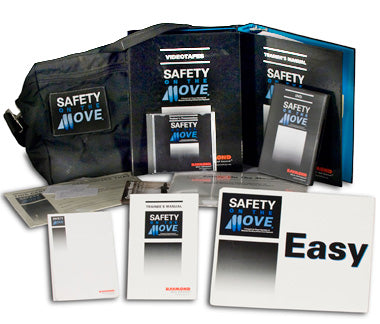There is absolutely no doubt that any vehicle that is well maintained will have a much longer lifespan. However, did you know that an average forklift that is kept in good operating condition with regular maintenance can last twice as long as an unmaintained forklift? We highly recommend these three critical forklift maintenance tips.

According to one source, almost 40 percent of mechanical services for powered industrial trucks (PITs) are done in-house across the United States alone. When servicing your forklift or heavy equipment, there are a few critical precautions that are absolutely necessary to do right. Following these guidelines will both ensure that it runs more efficiently and safely, saving your business both time and money.
- Get the right training - The correct training is necessary in order to maintain your forklifts and heavy equipment. Not all forklifts operate the same way, and just because you know how to work on a car or other equipment doesn’t mean you know how to service a forklift. Forklifts vary greatly from model to model, so working on one forklift can be vastly different than working on another. Make sure that your technicians are current on all electric, internal combustion, or rough terrain lift trucks. Specialized training classes ensure that your technicians are up-to-date on all components and new technologies. You can save labor costs by ensuring that your on-site repair technicians are certified and regularly educated about the general policies and procedures.
- Get on a schedule - Even if your company have some of the best trained and experienced technicians available, your forklifts need to be getting regular services and inspections to make sure they are consistently safe and OSHA-compliant. If you’re not on a regular maintenance schedule, you are setting your equipment and operators up for failure, as well as putting your business at risk for potential OSHA fines. Make sure your operators are doing their daily checks at each shift, and immediately reporting if anything is not functioning correctly. Equipment manufacturers generally recommend doing a scheduled maintenance every 500 hours, which means keeping track is key to success. Ignoring a small and simple fix can lead to thousands of dollars in repair costs, not to mention the strain of having a slowed production and increased workload on your other equipment.
-
Invest in high quality parts - Because breakdowns are generally unpredictable, make sure you have all the right items in stock so that you can get up and running again quickly. Raymond recommends that you always keep the following items in stock:
- Consumables: Penetrating lubricant, brake cleaner/degreaser, bearing grease, oil sorbent pads, hydraulic and drive unit oils
- Tools and shop supplies: Jacks and blocks, oil filters, static straps, air compressor, load wheels and drive tires along with their associated bearings and of course, the basic hand tools to get the job done
All three of these tips are equally crucial to the performance of your equipment. Please give them equal consideration before attempting to make any major repairs on your own, or switching your equipment to in-house service. Always consult your owner/operator manuals for each piece of equipment. Raymond Handling Concepts Corporation offers technical and operator training courses, parts sales, rentals, and service throughout the Washington, Oregon, Nevada, Northern California, Alaska, Western Montana and Idaho areas. Contact us today if you would like more information.
